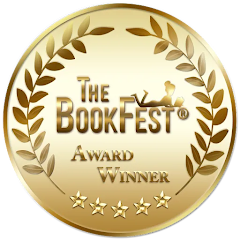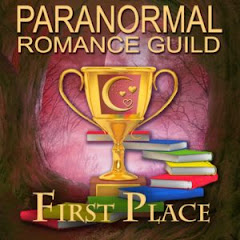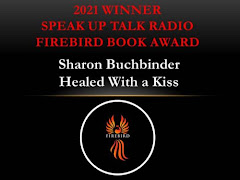What made you decide
to be an author?
I started writing
after reading Thomas Wolfe’s Look Homeward Angel while a teenager. Giving voice
to one’s feelings was something I needed at the time and writing seemed like
the answer. Although I didn’t succeed in becoming a fiction writer as a career,
I dabbled with story ideas from time to time over the years. Finally, when I
retired seven years ago, I decided to see whether I could write something that
anyone other than my immediate family would find worth reading.
What do you like best about being a writer?
What do you like the least?
Two bests: that
moment when something I’ve written comes together in a way I feel good about.
Maybe I’ve solved a problem, made a section of dialogue sound authentic, or
fixed a plot problem. The second best is reader feedback. There’s nothing
better than hearing from a reader who liked your book.
Least: Getting my
books edited. I’ve been disappointed when various people I’ve paid to edit my
books came up short. Trying several editors I’ve learned ‘you get what you pay
for.’
How do you think your life experiences have prepared you for writing?
My life experiences have helped me as a writer in many, many ways. One
of the reasons I couldn’t write decent fiction when I was 18 was I didn’t have
a broad enough experience to put things in perspective or to see the world from
various viewpoints. Having been an educator, journalist/editor, and business
executive has contributed in many ways as have my personal adventures including
marriages (two) and parenthood (also two).
Have you ever felt as if you were being dictated to while you wrote a
book--as if the words came of their own accord? If yes, which book did that
happen with?
When working on a first draft I write whatever comes into my head. That
doesn’t mean the writing is great to start out with. I always have to revise,
revise, and revise so more because some of that ‘stream of consciousness’
writing is garbage.
You’ve written five novels and are working on a sixth. What’s your favorite time management tip?
I can work on my books any time of day even if I only have 30 minutes
before I have to go someplace or do something else. I think that is because I
don’t have a tiny task master sitting on my shoulder telling me what I can or
can’t do. If you free yourself to write whenever you have a few minutes, you
will find you can always accomplish something positive. I’m retired, so I can
write any time of day I want. For those who have many obligations, my
suggestion would be to stick to your routine even though you don’t think you
are ‘in the mood’ to write.
Are you a plotter or a pantser, i.e., do you outline your books ahead
of time or are you an “organic” writer?
I started out with a thriller, which took very little outlining. Then I
tried a mystery and found I had to work through the structure of that story in
greater detail. Today, once I’ve decided my story concept, I begin writing, but
soon find the need to outline. I revise my outline almost weekly because I
often find the need to make changes, such as adding a plot line, revising
chapter order, or when what I thought would only take one chapter ends up
taking three.
If you had one take away
piece of advice for authors, what would it be?
I have two pieces of advice for beginners. Read eclectically, not just
in your genre. You can learn a lot from reading outside your field. Second,
don’t be a perfectionist. Some people spend years on a book and never finish
it. The only way to improve as a writer is to constantly try new things…so keep
writing even if it means putting aside something that’s not going well.
Did music help you find your muse with this book? If yes, which song
did you find yourself going back to over and over again as you wrote?
When I wrote my Ph.D. thesis, I had a radio tuned to the local FM
classical station. Today I write in silence because if I have music on, I pay
attention to the music, which interrupts. In terms of providing inspiration,
I’m stuck in the 70s for the most part, still listening to Neil Young, Ray
Charles, Johnny Cash, Michael McDonald, and lots of jazz.
Tell me more about House Divided.
Former CIA agent Leonard Robbins is told he can’t publish an article he
wrote for Foreign Affairs because his
prediction of the next stage of terrorism on U.S. soil may help our enemies.
When it turns out he is right, he’s asked to head a task force to track down
the killers.He soon discovers that the terrorists are targeting for bomb carriers members of the radical pro-Palestinian college group that has just recruited his daughter. Can Robbins tracks down the terrorists and rescue Courtney before she becomes their next victim?
How about an excerpt from House Divided?
New York City: Thursday, March 15Where can readers find more about your stories, books and you on the Internet?
“You did what?” Leonard Robbins asked his daughter, not sure he heard right due to the din in the Manhattan restaurant where he and his wife were celebrating Courtney’s twentieth birthday.“I said I joined Students for Palestinian Justice.”Leonard threw his hands into the air. “Why?”“You’re the one who taught me to root for the underdog.”“The Palestinians like to pretend they’re the underdog, but don’t ask them what they’re doing with all the money they get from us, the United Nations, Qatar, and even from Israel.”“But, Dad, the Palestinians are not occupying Israeli territory.”“Courtney, you should know the history of that region better before––”“Len, not now,” Alison Robbins said, placing her hand on her husband's arm. “It's neither the time nor the place.”Leonard frowned, but deferred to his wife. “You’re right. Sorry.”The silence that followed was not broken until three members of the restaurant wait-staff arrived, one with a candle in a large cupcake. Leonard detected a look of annoyance from his daughter, as if she thought this was another example of their treating her like a child. Yet, she couldn’t help but smile when the waiter lit the candle and led a funky rendition of the happy birthday song.Courtney puffed up her cheeks and blew out the candle to applause from diners at nearby tables.Alison removed a small gift-wrapped package from her pocketbook and handed it across the table. “Happy twentieth.”Courtney slid the ribbon off the package and tore the wrapping paper off the box. It was a dark blue velvet jewelry store box. She extracted a set of four silver bracelets. “Mom, you shouldn't have.”“Those were the ones you wanted, right?” Alison asked.Courtney nodded. She put them on and raised her arm to show them off.Leonard waited a few seconds before he pulled an envelope out of his jacket pocket and handed it to her. “Just don't donate any of this to the Palestinians.”Courtney opened the envelope. “Thanks, Dad. In other words, they can have my body, but not my money?”“When you put it that way, I'm not sure which is worse,” Leonard said.“Enough, you two,” Alison said. She waved down the waiter. “We should be getting back to the hotel. I'm sure your father wants to go over his talk one more time.”“I do,” Leonard said.“You’re not nervous, are you, Dad?”He chuckled. “Hardly. Besides, you probably have some school work to do.”“Not on my birthday! Sue Philips is waiting for me. We're going out.”“Then we won’t detain you any longer,” Leonard said.“Should I hail a cab?” Courtney asked.“No need, dear,” her mother replied. “We drove over in our van, but you can help your father maneuver his wheelchair out the front door while I pay the bill.”Buy Links:
Website: http://petergpollak.com
Facebook: https://www.facebook.com/pgpollak
Twitter: https://twitter.com/petergpollak

















































No comments:
Post a Comment